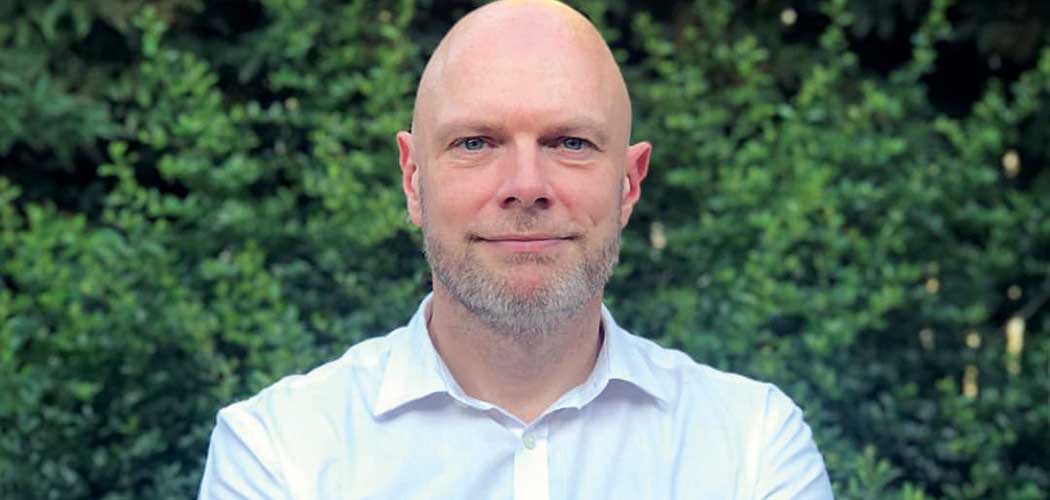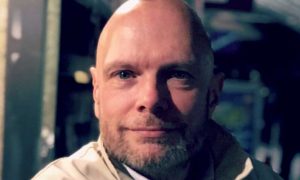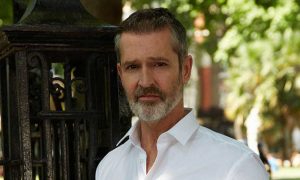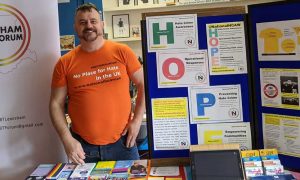With a rise in anti-LGBT hate crime, should we all be taking self-defence classes? David Hudson reports from a martial arts class.
I abhor violence. I’ve not been in a physical fight since I was a child. Therefore the actual act of physical resistance is alien to me. When someone grabbed the scruff of my T-shirt in a threatening manner last week, my first reaction was awkward, jerky and confused.
Thankfully, on this particular occasion, I had time to think through my response. I was attending a taster session with Ishigaki Ju-Jitsu, London’s long-running LGBT-friendly martial arts class. It’s a Tuesday evening in the basement of Finsbury Leisure Centre near Old Street.
The club’s been running for 20 years. Some members enjoy the activity as a sport, diligently working their way up through the coloured belts. For others, they just want to learn a few basics as a form of self-defence.
Twice a month it hosts introductory sessions for beginners. I was one of ten in my group: five men and five women.
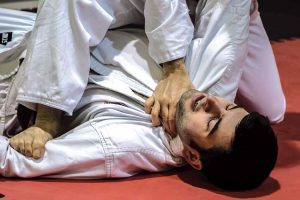
I had mixed feelings about attending. I’ve lived in London for decades and refuse to feel intimidated by homophobes. Wasn’t my attendance an admission a part of me does feel fearful? At the very least, it’s an acknowledgement the streets I walk are not necessarily as safe as I would like to believe.
Safety is something we can not take for granted. In June, the Guardian revealed that there has been a surge in homophobic and transphobic hate crime in England and Wales. Polices forces around the country revealed that anti-LGBT hate crimes had more than doubled in the past five years: from 4,600 to 11,600 cases in 2017-2018.
Around 40% of these crimes included violence.
The real figures will undoubtedly be higher. A 2017 report from Stonewall concluded, ‘Four in five anti-LGBT hate crimes and incidents go unreported, with younger LGBT people particularly reluctant to go to the police.’
The reasons behind the rise are difficult to pinpoint. In part, some of us do feel more confident reporting such crimes to the police. Others believe a rise in far-right populism has emboldened some with ant-LGBT views become more vocal and active.
Whatever the reason, to be the victim of any anti-LGBT hate crime can be traumatizing or even life-changing. Just a month before Pride in London this year, images of a female couple assaulted on a London bus went viral. Melania Geymonat, 28, and her girlfriend, Chris, 29, were attacked by a gang of boys.
High-profile cases like this, and the reported rise in hate-crime, has led some people to take practical steps to protect themselves.
The Ishigaki class starts with warm-up exercises, before we get down to business. Most of those attending had turned up on their own and we were encouraged to swap partners for each exercise.
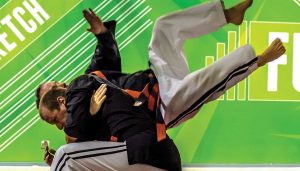
We practised grabbing each other by the scruff of our tops and forcing our assailant to release their hold. Then we went through a variety of wrist-grabs, again learning how to extricate ourselves if someone tries to hold on to us. Some moves are surprisingly easy if you know what to do.
Although grabbing others by the wrist seems awkward, I had to remind myself that we all were here because we wanted to learn how to escape such situations. There was little point being gentle. In a real-life situation, an assailant is unlikely to be so.
‘London can be a dangerous place,’ offered one man sagely, when I asked him what brought him to the class.
‘I’m pretty feeble, even if I do say so myself,’ confided another to me afterwards. ‘I thought this might help me protect myself if something ever happened.’
Our instructor is Julian Bremner. He was keen to stress that most of those who attend regularly enjoy the social aspects of the club. However, others do mention self-defence as part of their motivation.
‘Ju-jitsu like most martial arts is a defensive, it’s not there as an attacking force. The point of self-defence is to get you out of the immediate threat so you can run fast in the other direction. In an ideal world, you’d never need to use your self defence because if a threatening situation developed, you’d run away from it.
The classes are open to all, regardless of age or level of fitness.
‘We’ve had members who are sight impaired,’ says Bremner. ‘And it’s a techniques-based skill. So you don’t have to be the biggest person in the world to be effective in defending yourself.’
LGBT self-defence classes have been running for decades in London. Does Bremner find it depressing that some of us still feel the need to learn such skills?
‘Yeah, like everyone I would have hoped that this would have been a thing of the past, and for a moment there it looked like it, didn’t it? But the demons that have been unleashed by Brexit, the poisons that lurked in the mud have hatched out.’
He stresses the vast majority of those who learn ju-jitsu learn it as a sport and will never need to use it for self-defence. It also can bring balance to a life that many of us spend staring at screens.
‘For me, I had a very headspace job,’ he says. ‘What ju-jitsu gives to me is a few hours of bringing me right into the here and now, into the physical. Ju-jitsu gives me a kind of peace.’
I didn’t achieve peace of mind through one taster session, but I did enjoy the experience and everyone was friendly. And learning just a little bit about self-defence does feel empowering. I just hope I never have to use it.
For more details about Ishigaki Ju-Jitsu, check out ishigaki.org.uk
Photographs by ©D3MØLA



